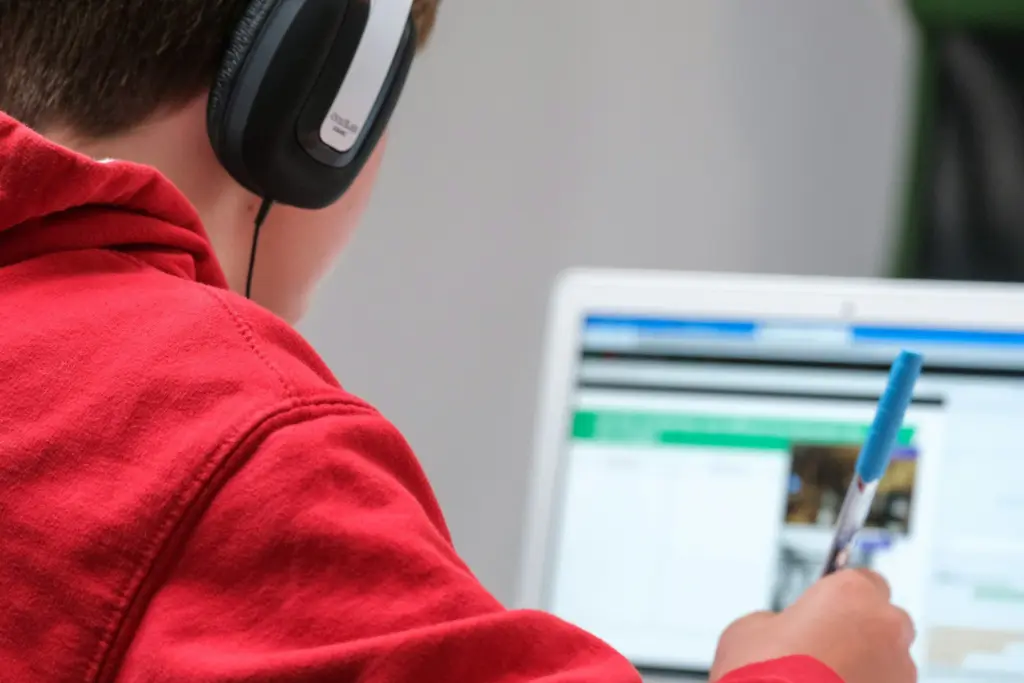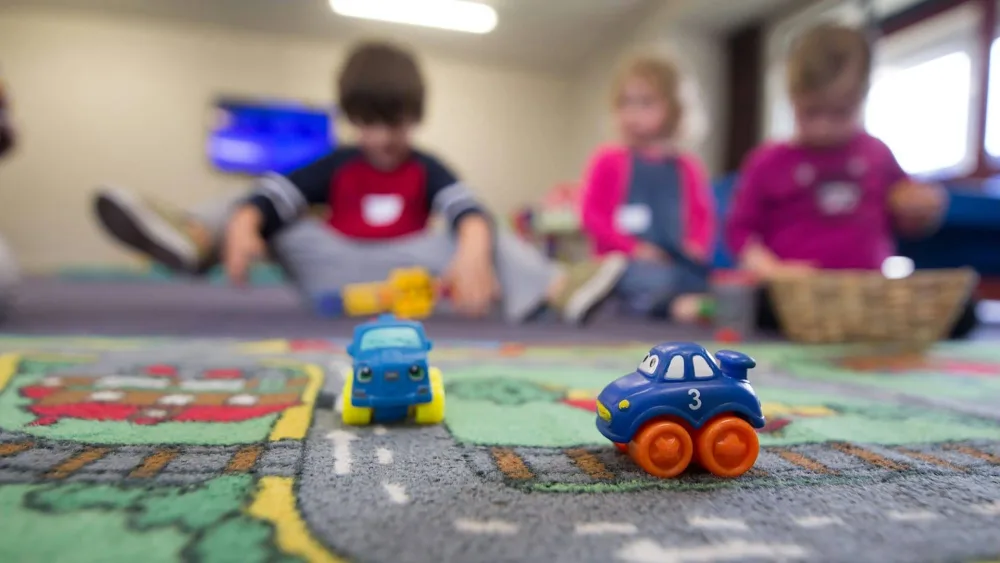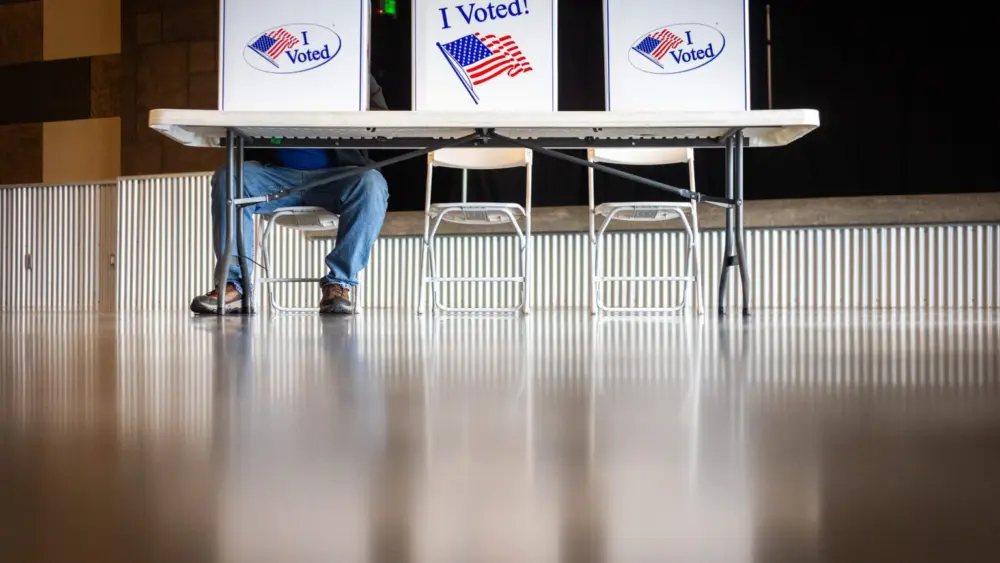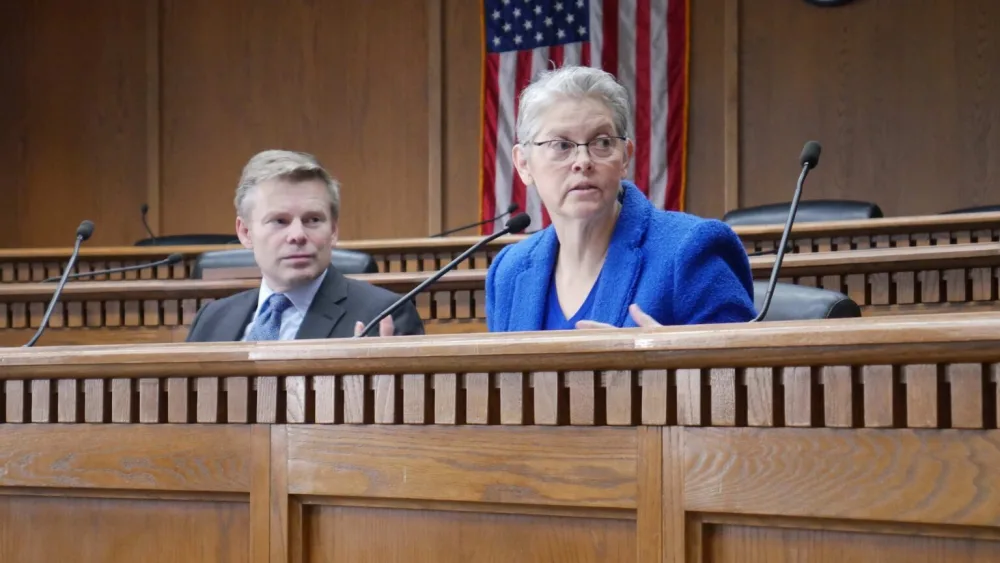Originally posted on IdahoEdNews.org on July 29, 2025
BOISE, ID – Jessica Turnblom comes from a bilingual family, and it’s important to her that her five kids learn how to speak both English and Spanish fluently. And yet, she has found Spanish immersion public school classes to be scarce.
She initially kept her oldest child home when, at kindergarten age, he was ahead academically, and she wanted to make sure he remained academically stimulated.
This year, four of her children (a 4th grader, a 1st grader and two kindergartners) are enrolled in their homeschool program, the Idaho Home School Learning Academy (IHLA). In 2020, the family heard from friends about IHLA, an online, publicly-funded charter school. This means it is authorized and overseen by the Oneida School District, yet it retains the flexibility to innovate with its educational approach.
As part of the school, Turnblom receives a $1,800-per student Educational Savings Account (ESA), part of which she uses to provide her children with Spanish courses.
“We use that funding to make sure their Spanish lessons are quality and that they can really learn it,” she explained.
Turnblom also uses the ESA for her oldest son, a 4th grader, to participate in the Boise Zoo Homeschool Zoo program. Here, he learns about animals in a hands-on environment.
“He loves learning about all the different animals, how they make habitats, and how to take care of them. My kids love programs like that, and I can’t necessarily provide [those opportunities]…here at home.”
The school’s enrollment has dramatically increased over the past few years, from 203 students in 2017 to a projected 7,876 this fall. IHLA is part of a growing increase in online schools in Idaho.

Part of what makes IHLA unique is the stipend or ESA that it offers to the virtual school families.
The ESAs make up $14 million, about a quarter of the school’s $55 million budget.
These ESAs have been a point of legislative scrutiny. Lawmakers have raised questions about the allocation of these funds, especially when the state is already offering money through grants like the now-defunct Empowering Parents program or the newer Idaho Parental Choice Tax Credit.
The discussions often center on the oversight of how these public funds are used when distributed to families, even with an approval process in place.
Currently, the school is under legislative review to “evaluate and provide clarity around the academy’s operations.”
While IHLA is a public charter school, its educational services are delivered through partnerships with third parties like Harmony, Home Ed 360, and Braintree Academy. Harmony specifically has been the focus of past investigation by EdNews.
Turnblom hopes sharing her story helps to contradict some of this scrutiny and show how some families are benefiting from IHLA.
“I feel like there’s been a lot in the news about [IHLA] and not a lot of positive stuff. But it’s so positive, and a lot of times the brick and mortar schools haven’t worked well for these students, so this is just an alternative way to educate in the way that’s best for them. Making it unique and doing it one-on-one is so helpful for many, many students.”
Turnblom also expresses frustration with the way these ESAs have been discussed. “I think there’s a lot of misinformation about how the funding works. I think people just think we’re getting free money and then we’re not doing anything. We’re just playing. That’s not it at all. I take this job of educating my children really seriously and [prioritize] giving them the best education that I possibly can.”
She also adds that “you cannot access [ESA money] without the approval process,” which includes submitting a request for specific academic activities. School administrators then review and approve these requests prior to any reimbursement.
“You can’t just be paying another mom to teach your kids Spanish. It has to be a real program and legit, and they will check on that for sure.”
Turnblom and her family choose to use HomeEd 360, where they are assigned a teacher for their family. Though Turnblom says she’s pretty “independent,” “I know she’s always there, and if I do have a question, she’s always quick to respond….HomeEd 360 does an amazing job.” Turnblom also likes using the meet-up and field trip opportunities as social outings for her kids.
Turnblom described one instance where she was having trouble helping one of her children understand a difficult concept. She reached out to the teacher, who was able to give her ideas of how to help her child.
She says there is a range of how much the teacher is utilized, and that some parents can even use lessons uploaded by the teacher as part of their daily instruction.
The public status of IHLA means students are required to follow certain state and federal rules, like taking state-mandated assessments — something other homeschool families are not required to do. This is another subject under legislative review, as IHLA students have historically been significantly less proficient than state averages on math and English state tests.
| Oneida School District/IHLA Percent Proficient | Statewide Percent Proficient | |
| Math | 25.5% | 42% |
| English | 39.8% | 53% |
Some online school advocates say these discrepancies represent differences in teaching styles and priorities rather than learning deficiencies.
Though Turnblom doesn’t use special education resources for her kids, the effectiveness of online models in serving those who need specialized support has also been a subject of ongoing discussion.
Turnblom says her kids have done well on state testing, and that she is in the minority of homeschooling parents who like this requirement. In fact, it was one of the main reasons she signed up with IHLA.
“If the state is going to give us funding, it is very fair for them to make sure we are meeting state standards,” she explained.
She views the tests as a way to gauge where her children are at with their learning.
“It’s a representation of, are you understanding, can you critically think about these questions?…I just want to know where they’re at, especially compared to other Idaho students, making sure we’re staying on top of it, but also understanding that everyone’s different.”
She affirms that people should view IHLA as one option of many, that it’s “not about being competitive” between different schooling choices. “It’s just an option. And I think we as voters and parents specifically, should have options.”





